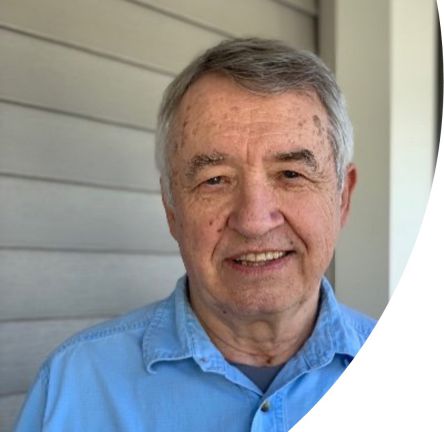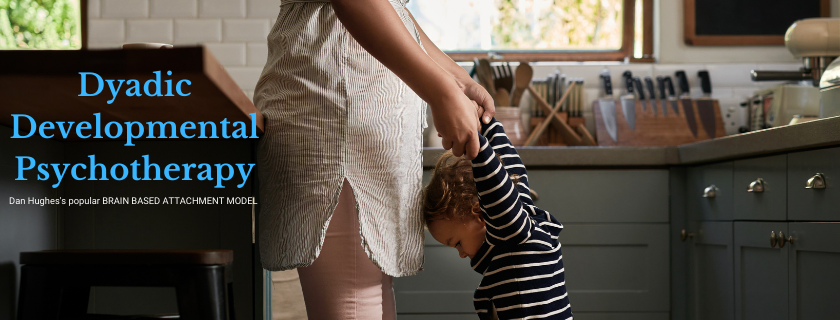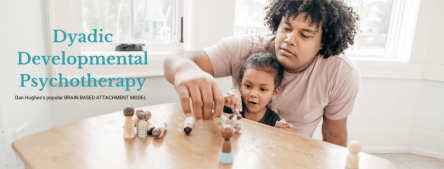DYADIC DEVELOPMENTAL PSYCHOTHERAPY
and PRACTICE
Compass Seminars in collaboration with the DDPI Network provide Dyadic Developmental Psychotherapy and Practice, its parenting approach (PACE), resources, and training courses for Australian and Singaporean professionals and families/carers.
Dan Hughes, a Clinical Psychologist, created Dyadic Developmental Psychotherapy (DDP) as a treatment for families with adopted or fostered children who had experienced neglect and abuse in their birth families and suffered from significant developmental trauma. DDP is based on and brings together attachment theory, what we understand about developmental trauma, the neurobiology of trauma, attachment and caregiving, intersubjectivity theory and child development.
As a central part of attachment-focused family therapy, the approach supports adults to get beyond the behaviour and defences of children in their care by developing an attitude of Playfulness, Acceptance, Curiosity and Empathy (PACE). PACE enables adults to build safe, trusting and meaningful relationships with young people who have experienced trauma.
What is PACE?
PACE is a way of thinking, feeling, communicating and behaving. The approach focuses on building trust, strengthening emotional connections and shared experiences, developing a sense of security and containing heightened emotions. Using PACE helps adults to slow down their own reactions, stay calm and attune to what the young person is experiencing in the moment. It sends signals that make it safe to be sad, share moments of joy or seek comfort. In tricky moments it helps stay emotionally regulated and guide the young person through their emotions, thoughts and behaviours. In turn, PACE helps the young person feel more connected to and understood by adults in their life. It helps to slow down their own responses and break down the wall of shame and mistrust many feel.

DDP is family-based and is focused on facilitating the child’s readiness and ability to establish a secure attachment with their caregivers. It is called Dyadic Developmental Practice both to focus attention on the importance of reciprocity in parenting, caregiving and therapy, and also to draw attention to the fact that abuse, neglect and trauma can seriously impact on the child’s developmental age and stage. This intervention is theoretically based on the models of attachment theory and intersubjectivity, and is consistent with the needs of children and young people who have experienced developmental trauma. It is an approach that:
- Integrates the areas of neurobiology of trauma, early child development and attachment theory, to produce a therapeutic and parenting approach that assists professionals to understand and effectively support children with trauma- attachment problems, and their families.
- Communicates playfulness, acceptance, curiosity and empathy (PACE) in order to help the child regulate their feelings (often fear, shame and anger) associated with past experiences and to create together new meanings to be integrated into the child’s life story (autobiographical narrative).
- Recognises the vital role which adoptive parents, foster carers and residential workers play in the recovery of traumatised, attachment-resistant children.
- Provides a set of principles that can support networks; inform and enrich parenting; and can support the child outside of the home eg in residential settings and at school
It is an approach which limits shame, promotes compassion and brings a sense of mutual support, strength and resilience.
Dan Hughes, DDP Founder

Trainings

DDP-PACE: Introduction to the PACE Attitude in Action
Developed specifically for Australia, this training is for those who work with, teach, provide care or parent children and young people who have experienced the damaging effects of abuse, neglect and disruption. The underpinning model is Dyadic Developmental Practice (DDP). Developed by Dr Dan Hughes as a central part of attachment-focused family therapy, the approach supports adults to get beyond the behaviour and defences of children in their care by developing an attitude of Playfulness, Acceptance, Curiosity and Empathy (PACE). PACE enables adults to build safe, trusting and meaningful relationships with young people who have experienced trauma.
PACE is a way of thinking, feeling, communicating and behaving. The approach focuses on building trust, strengthening emotional connections and shared experiences, developing a sense of security and containing heightened emotions. Using PACE helps adults to slow down their own reactions, stay calm and attune to what the young person is experiencing in the moment. It sends signals that make it safe to be sad, share moments of joy or seek comfort. In tricky moments it helps stay emotionally regulated and guide the young person through their emotions, thoughts and behaviours. In turn, PACE helps the young person feel more connected to and understood by adults in their life. It helps to slow down their own responses and break down the wall of shame and mistrust many feel.
A MAXIMUM of 28 participants is permitted.
DDP Level One Training
This is an introductory 28-hour training course relevant to professionals and therapists who have experience in communicating with and working therapeutically with children and young people and their families. It is focused on families and residential care homes when children have experienced past developmental trauma and have associated attachment difficulties.
By the end of this course participants will understand:
-
The impact of secure developmental attachment on neurological, affective, cognitive, and behavioural development
-
How developmental trauma (abuse and neglect) create insecure and disorganised attachment patterns which impede normal development
-
Principles of psychotherapy, effective communication and parenting that facilitate the development of attachment security
-
Specific strategies of parenting and communication that facilitate the development of a secure attachment and help children integrate past trauma and abusive experiences
-
How the caregiver’s attachment history and attachment patterns can be important factors when providing care for children who have experienced developmental trauma.
In this four-day training, principles and interventions are presented through formal discussion, case examples, videotape of therapy sessions, role-play, and hand-outs.
A full description of the content for each of the four days can be found here.
A MAXIMUM of 27 participants is permitted.


DDP Level Two Training
This DDP Level Two 4-day (28 hour) workshop is open to clinical psychologists, social workers, parent mentors, therapists and other practitioners, who have completed the 4-day Level One training. It follows on from the ideas and skills introduced in Level One and is suitable for those who are beginning to use the principles and interventions in their day-to-day work.
The aims of this training are:
-
To gain a deeper understanding of the theory and practice of the interventions and parenting principles used in this approach.
-
To follow up on any relevant themes that participants would like more teaching on.
-
For each participant to have opportunities to focus on the successes and barriers experienced in applying the model in their practice via supervision or consultation about their work with families or their specific practice. This is the main aim.
-
To provide participants with the opportunity to explore (in small groups of 3 people for one hour a day) how their attachment history and experiences may inform and have an impact on their work.
We also invite a small number of participants (2 max) to bring a taped clinical session to be shown. The trainer shall provide advice on their DDP practice similar to what occurs for DDP Practicum students. To express your interest in this, click here to send an email to Ben at Compass to discuss further.
A MAXIMUM of 18 participants is permitted.
Coming Workshops
Can't find your city?










